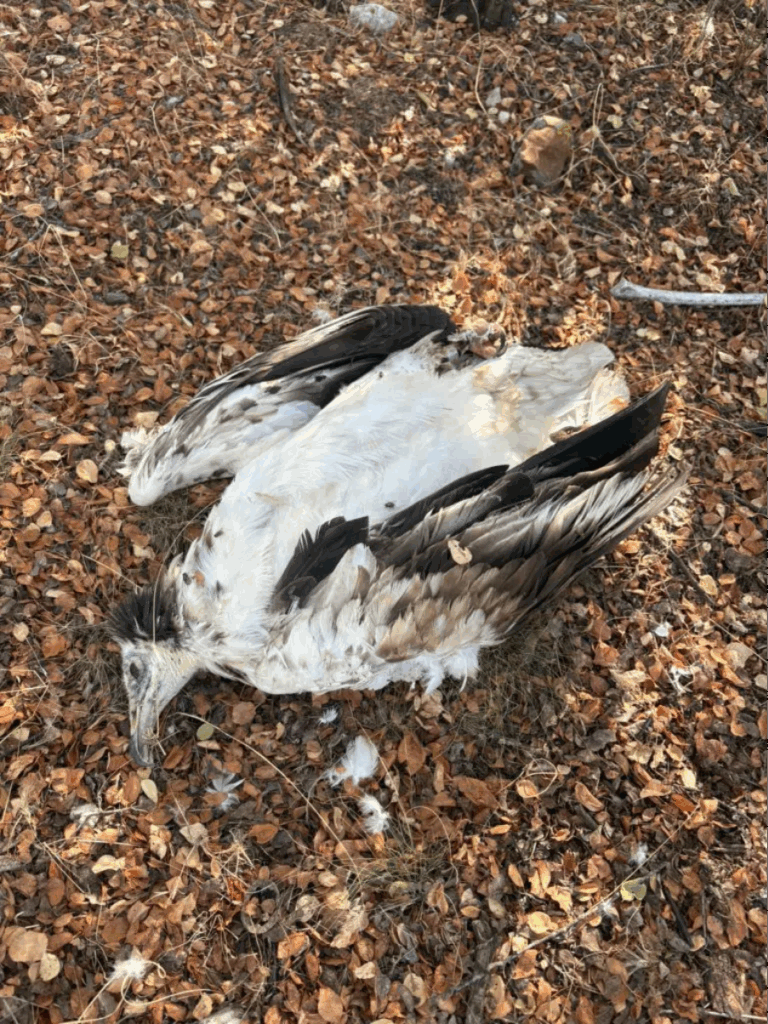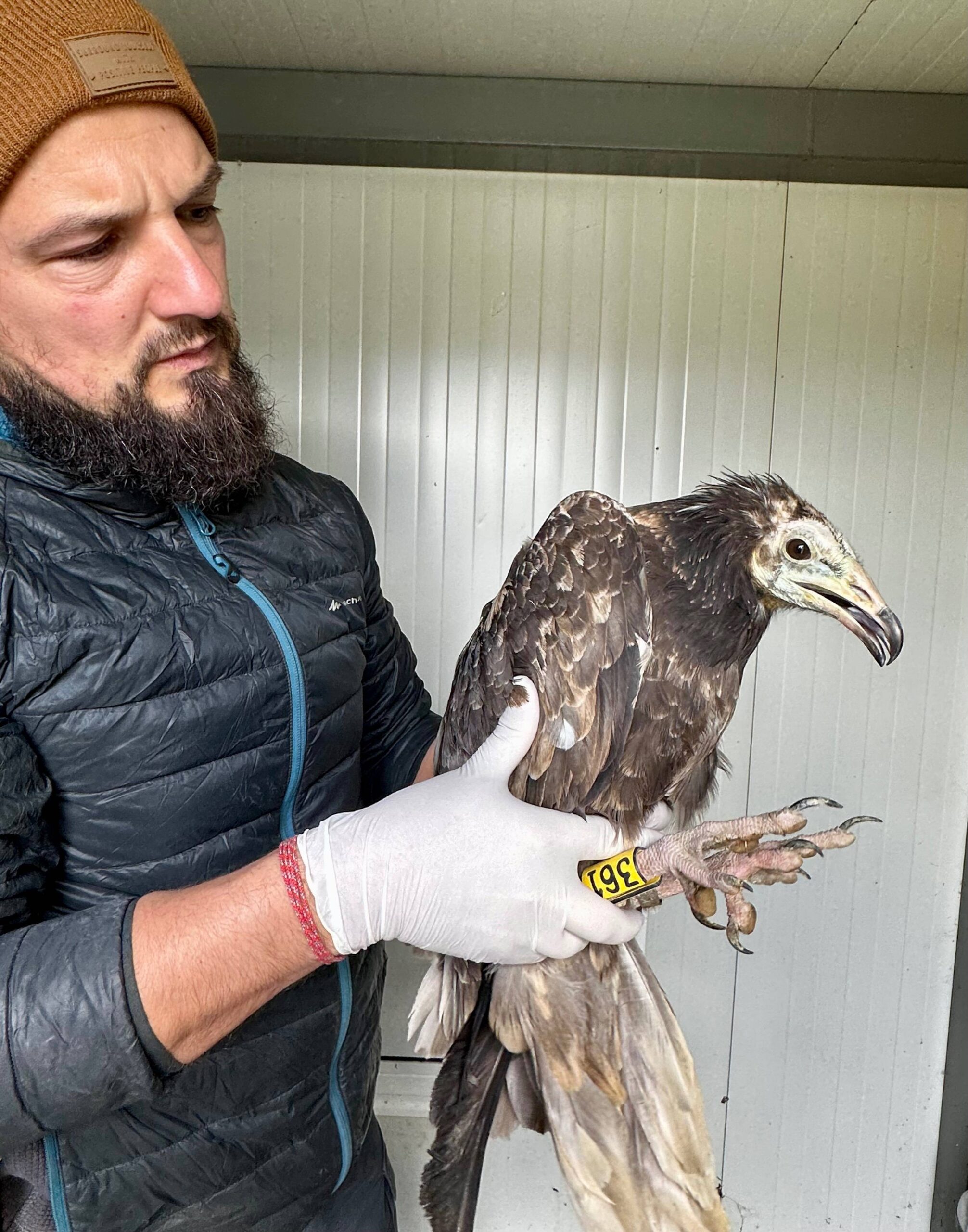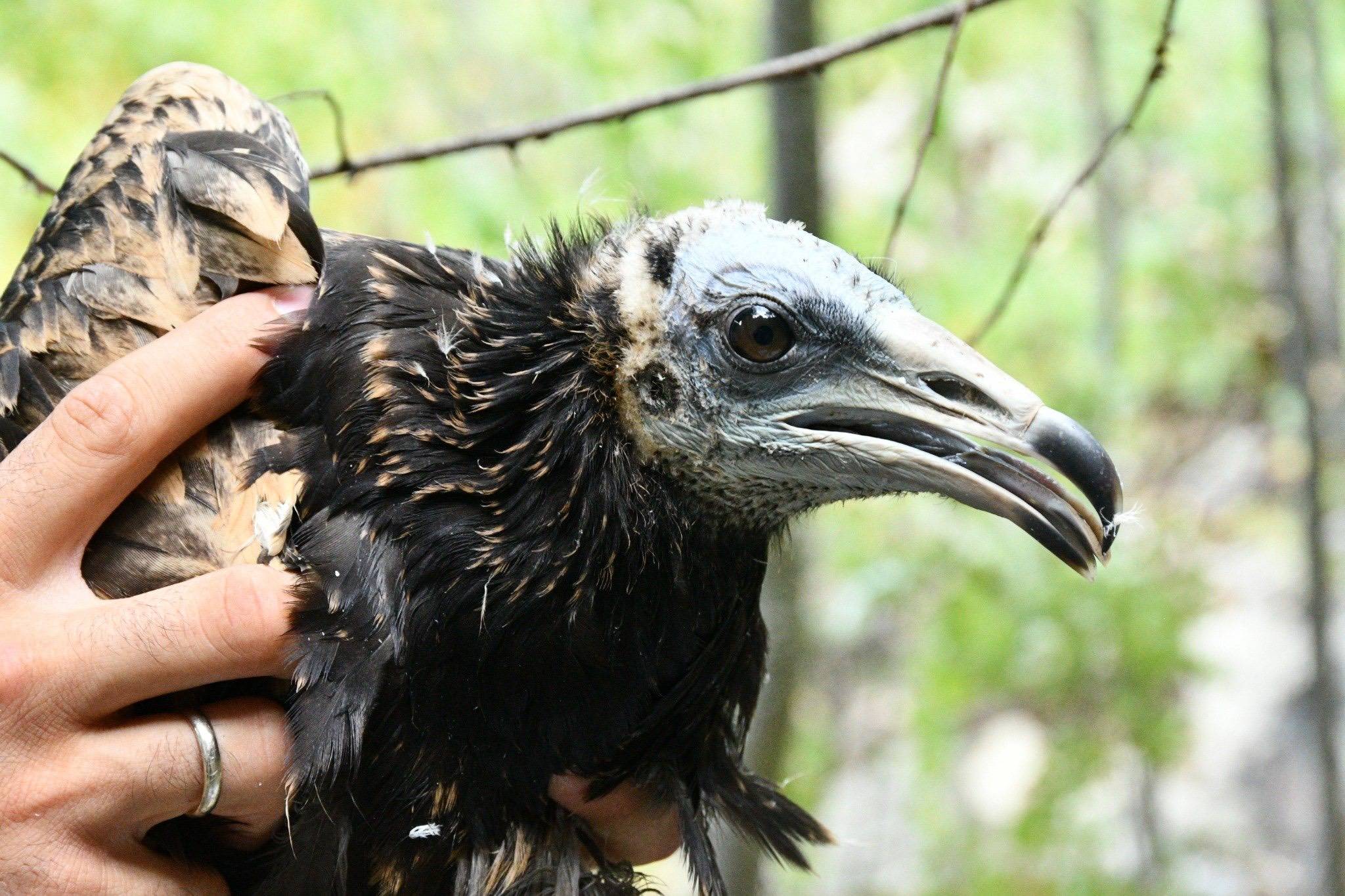We are sad to share the news that Nika, a young Egyptian Vulture (Neophron percnopterus) released by the Bulgarian Society for the Protection of Birds (BSPB) in Bulgaria’s Eastern Rhodopes in 2024, has tragically died from electrocution during her autumn migration in Turkey.

Hatched at Prague Zoo, Nika was one of several captive-bred Egyptian Vultures released to strengthen the Balkan population. From the very beginning, she showed all the signs of a strong and capable bird ready to claim the skies of the Eastern Rhodopes.
A promising start in the wild
After her release, Nika quickly adapted to life in the wild. She completed her first long migration successfully, reaching Saudi Arabia, where she spent the winter of 2024–2025. When spring came, she returned straight to her release site in Bulgaria — a hopeful sign for the team that had followed her journey closely.
Throughout the summer, Nika was frequently seen around the supplementary feeding station managed by BSPB, mingling with other released and wild non-breeding Egyptian Vultures. She was thriving — learning, exploring, and living proof that conservation efforts could make a difference.
A fatal encounter
In late September, as her migratory instincts guided her south once more, Nika set off on her journey toward Africa. After successfully crossing the Bosphorus, she reached northern Türkiye, where night fell over an open agricultural landscape crisscrossed by dangerous powerlines. Seeking a place to roost for the night, Nika landed on a hazardous type of pylon — a fatal decision that led to her electrocution.

Upon receiving the signal of her transmitter, BSPB immediately contacted Doğa Derneği (BirdLife Türkiye), their partner in Turkey, as well as Eskişehir Zoo. A dedicated team from Eskişehir Zoo reached the site within three hours but sadly, it was too late — Nika had been electrocuted upon landing on the unsafe pylon.
Electrocution: a preventable killer
Electrocution remains one of the leading causes of death for Egyptian Vultures, responsible for around 20% of all known mortalities. In Turkey alone, thousands of birds — including many protected species — are killed every year due to unsafe power infrastructure.
When vultures perch or take off from unsafe pylons, their large wings can easily bridge the gap between live wires, causing a fatal electric shock. This preventable hazard continues to contribute to population declines across species. To tackle the problem, conservationists are working closely with electricity companies to insulate high-risk powerlines and replace outdated structures with safer designs. In the long term, adopting bird-safe pole types — or even burying powerlines in areas rich in biodiversity — offers the most sustainable solutions.
Mitigating electrocution not only protects endangered species but also benefits society. When large birds like vultures, storks, or eagles are electrocuted, they often cause short circuits, power outages, and even wildfires. Insulating dangerous powerlines and retrofitting hazardous poles improves safety, reduces costs, and ensures a more reliable power supply for local communities.
Working together for a safer future
Considerable progress has been achieved in mitigating electrocution, yet the challenge is far from over.
Well done to BSPB, Eskişehir Zoo and Doğa Derneği for their swift response and investigating the cause of Nika’s death. The information gathered will guide future conservation efforts and help prevent such tragedies.
Source: https://bspb.org/en/egyptian-vulture-nika-electrocuted-in-turkiye-during-migration/



